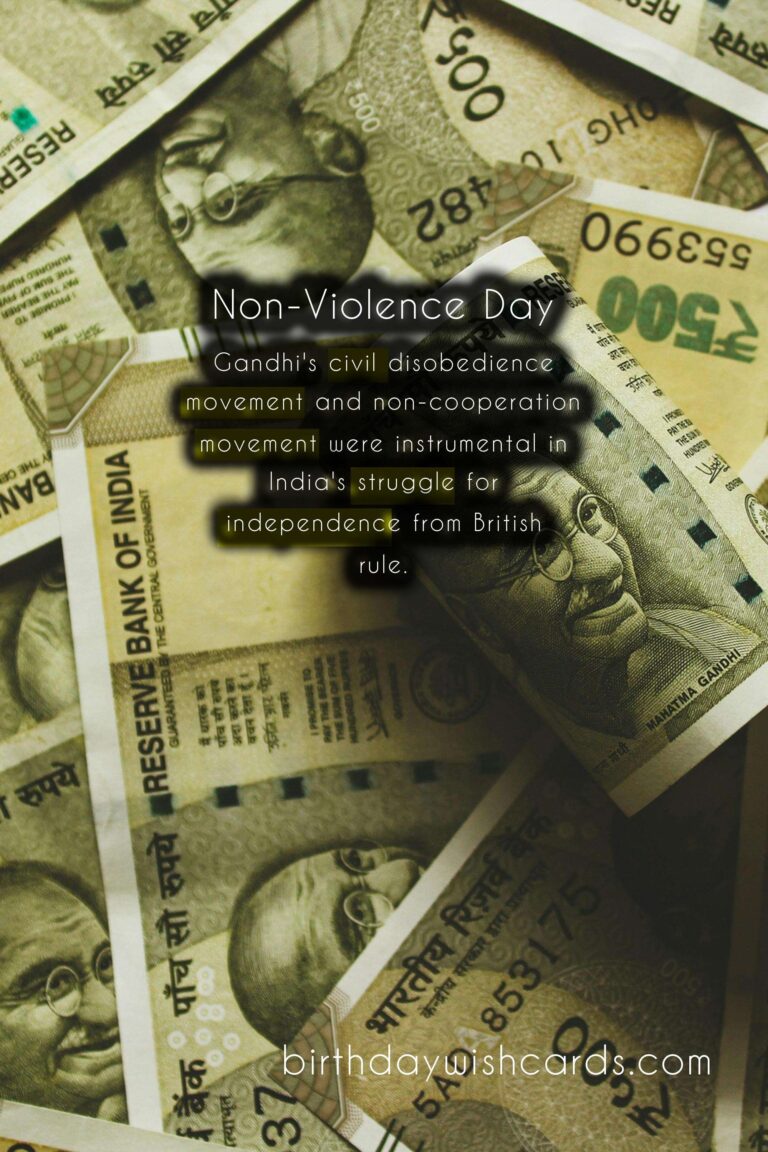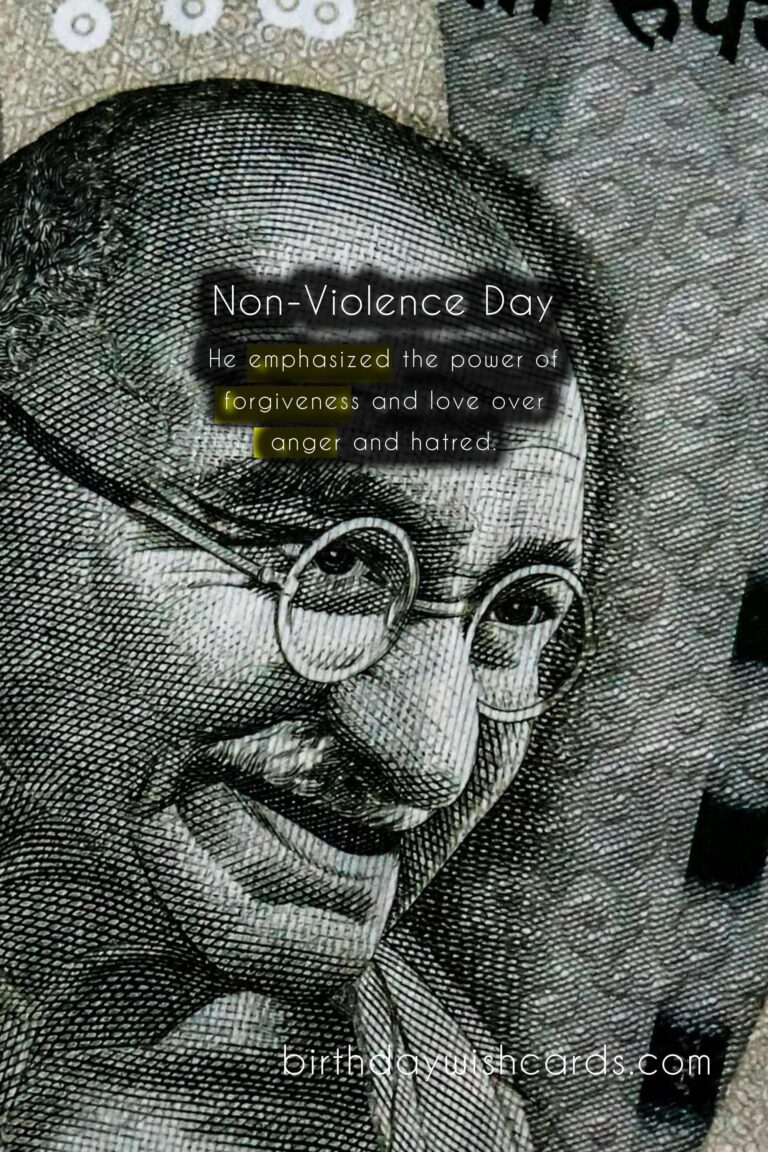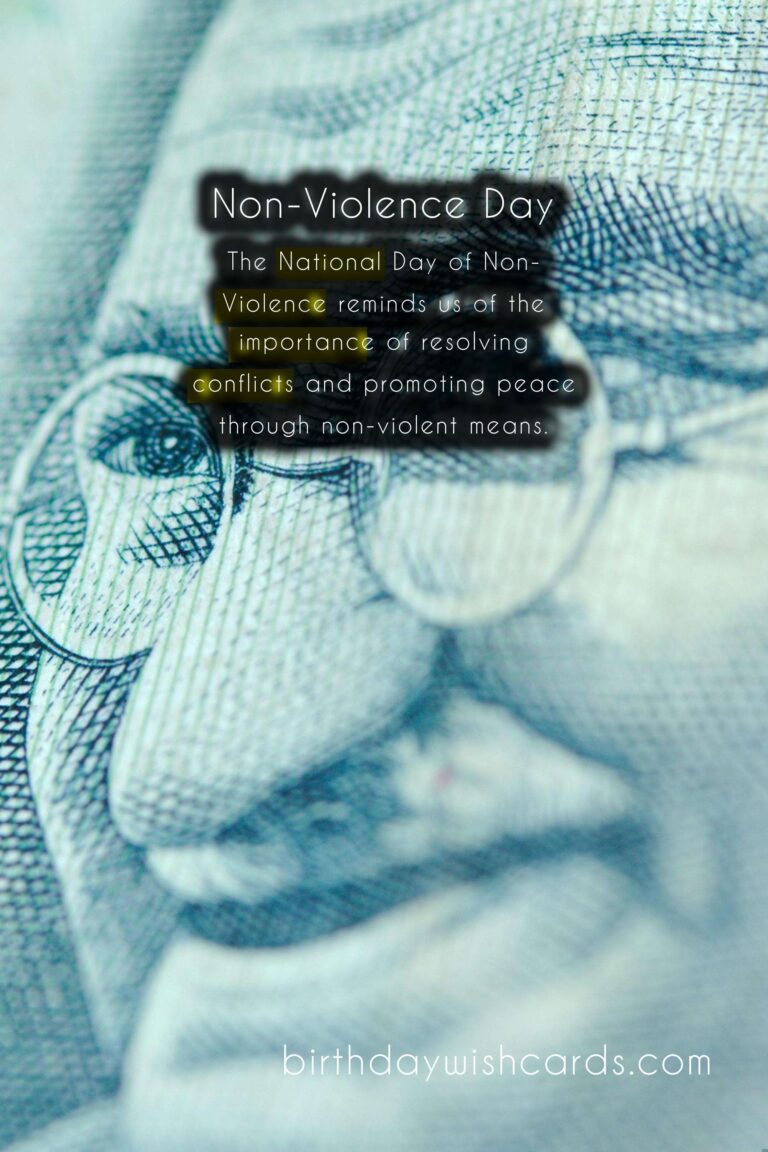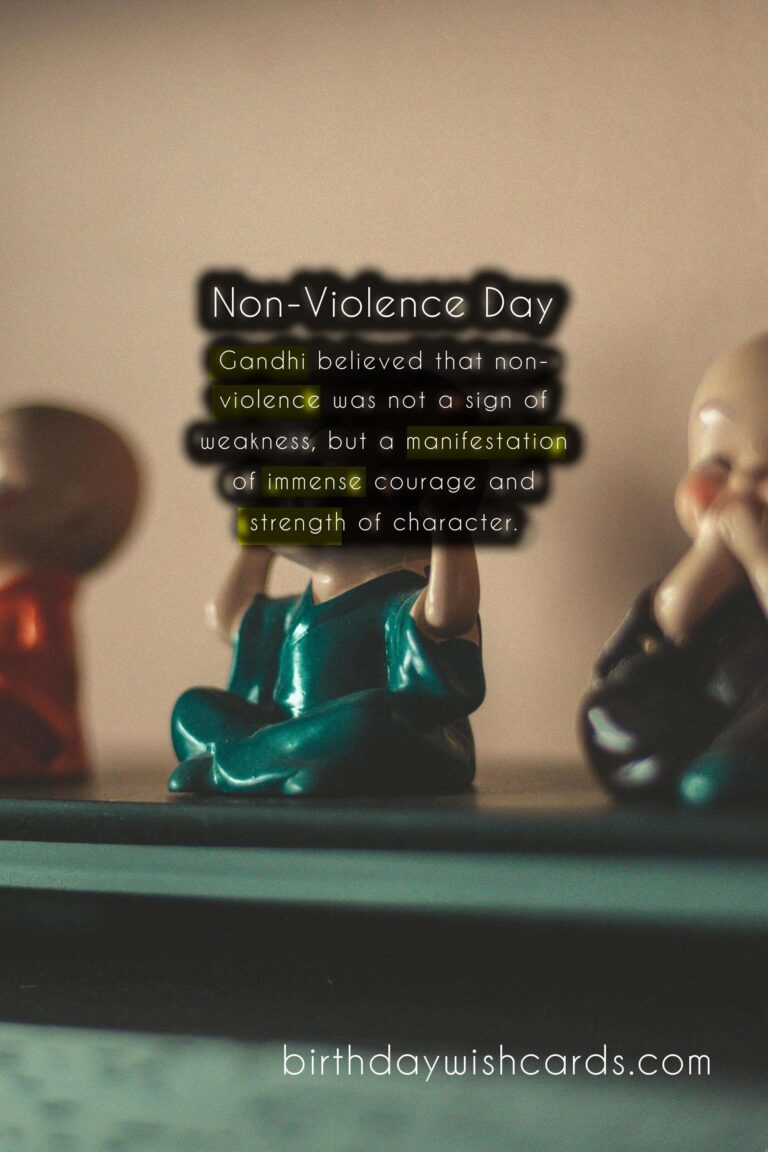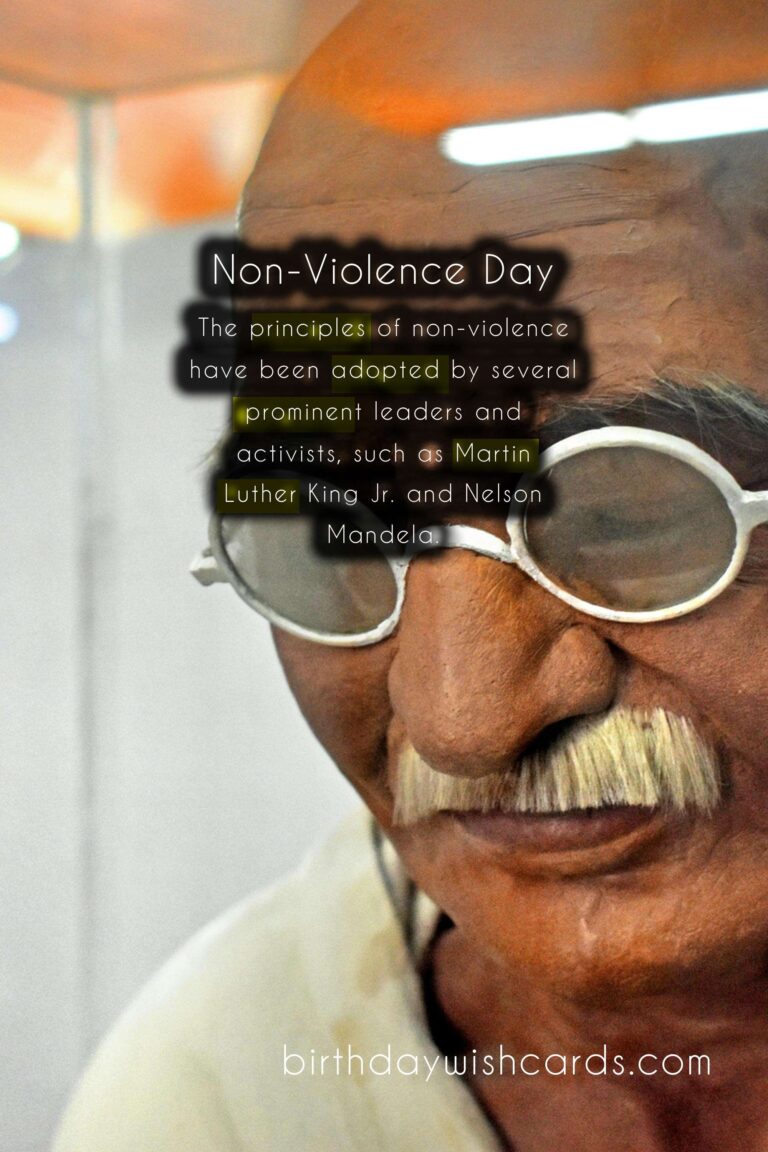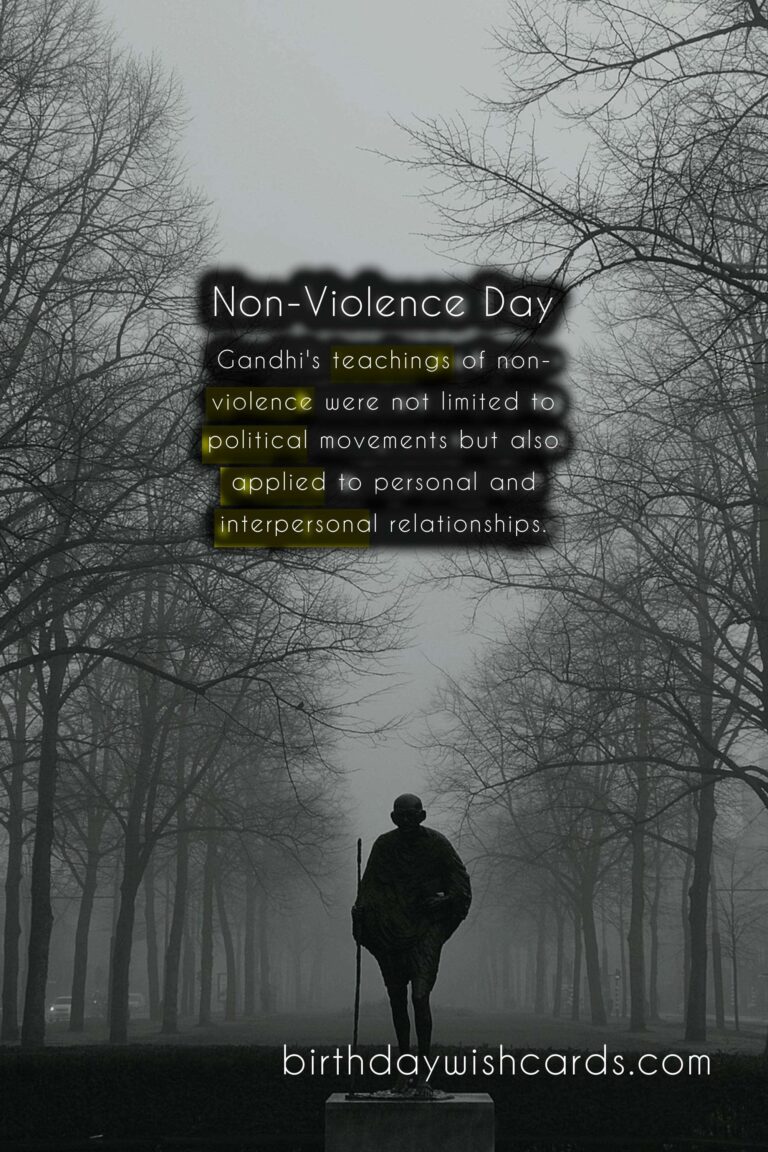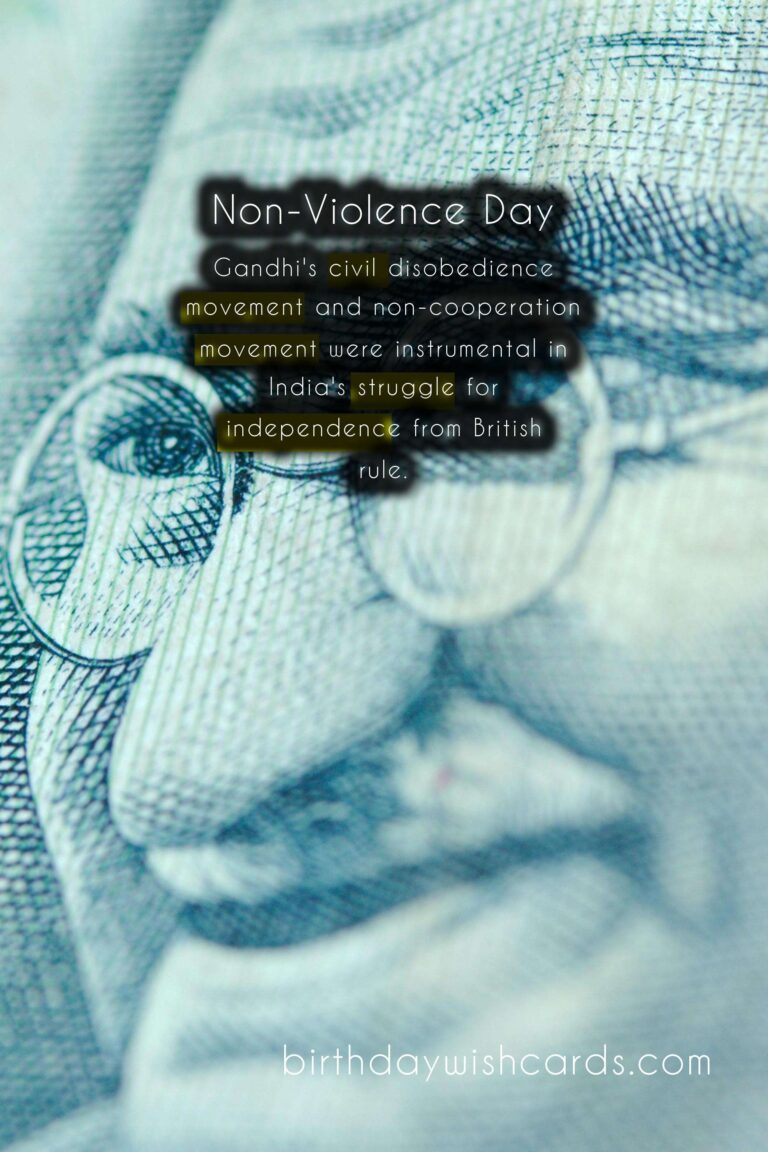 The National Day of Non-Violence is observed on October 2nd every year to honor the birth anniversary of Mahatma Gandhi, the visionary leader and father of the Indian independence movement. This day marks the importance of non-violence and its immense power to bring about social change. Gandhi’s philosophy of non-violence, or ahimsa, has inspired countless movements and leaders around the world and continues to be relevant in our present times. On this day, we look back on Gandhi’s life and his teachings, and strive to incorporate them into our daily lives. Let us take a closer look at the significance of the National Day of Non-Violence and its impact on the world. In 2007, the United Nations General Assembly declared October 2nd as the International Day of Non-Violence in honor of Gandhi’s principles. Gandhi believed that non-violence was not a sign of weakness, but a manifestation of immense courage and strength of character. He emphasized the power of forgiveness and love over anger and hatred. Gandhi’s civil disobedience movement and non-cooperation movement were instrumental in India’s struggle for independence from British rule. Gandhi’s teachings of non-violence were not limited to political movements but also applied to personal and interpersonal relationships. The National Day of Non-Violence reminds us of the importance of resolving conflicts and promoting peace through non-violent means. Gandhi’s legacy continues to inspire individuals and organizations to work towards creating a more just and equal society. Non-violent protests and movements have played a crucial role in bringing about significant social changes throughout history. The principles of non-violence have been adopted by several prominent leaders and activists, such as Martin Luther King Jr. and Nelson Mandela. The National Day of Non-Violence is a reminder of the power that lies in peaceful and non-violent actions and the impact it can have on the world.
The National Day of Non-Violence is observed on October 2nd every year to honor the birth anniversary of Mahatma Gandhi, the visionary leader and father of the Indian independence movement. This day marks the importance of non-violence and its immense power to bring about social change. Gandhi’s philosophy of non-violence, or ahimsa, has inspired countless movements and leaders around the world and continues to be relevant in our present times. On this day, we look back on Gandhi’s life and his teachings, and strive to incorporate them into our daily lives. Let us take a closer look at the significance of the National Day of Non-Violence and its impact on the world. In 2007, the United Nations General Assembly declared October 2nd as the International Day of Non-Violence in honor of Gandhi’s principles. Gandhi believed that non-violence was not a sign of weakness, but a manifestation of immense courage and strength of character. He emphasized the power of forgiveness and love over anger and hatred. Gandhi’s civil disobedience movement and non-cooperation movement were instrumental in India’s struggle for independence from British rule. Gandhi’s teachings of non-violence were not limited to political movements but also applied to personal and interpersonal relationships. The National Day of Non-Violence reminds us of the importance of resolving conflicts and promoting peace through non-violent means. Gandhi’s legacy continues to inspire individuals and organizations to work towards creating a more just and equal society. Non-violent protests and movements have played a crucial role in bringing about significant social changes throughout history. The principles of non-violence have been adopted by several prominent leaders and activists, such as Martin Luther King Jr. and Nelson Mandela. The National Day of Non-Violence is a reminder of the power that lies in peaceful and non-violent actions and the impact it can have on the world. 
